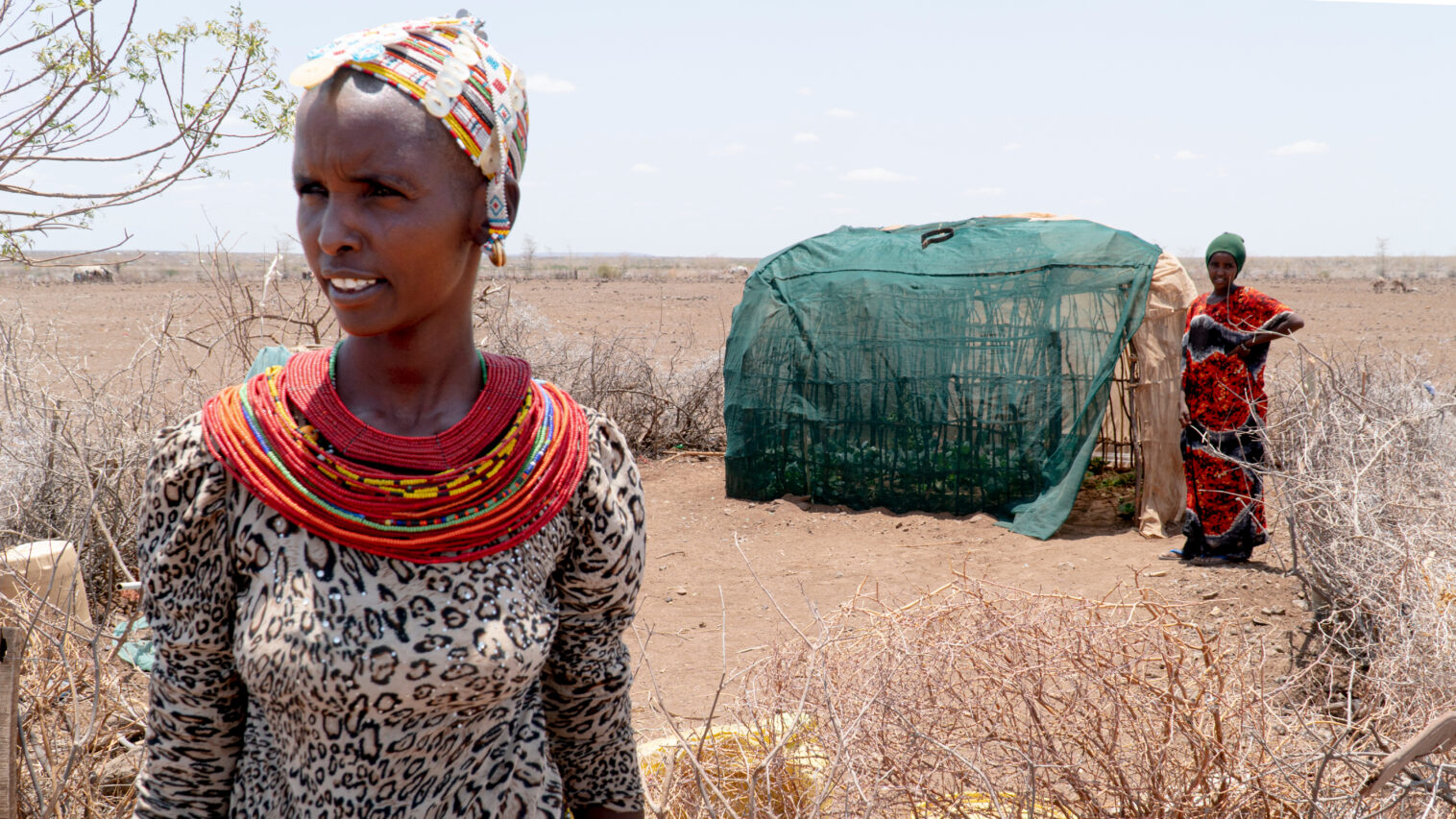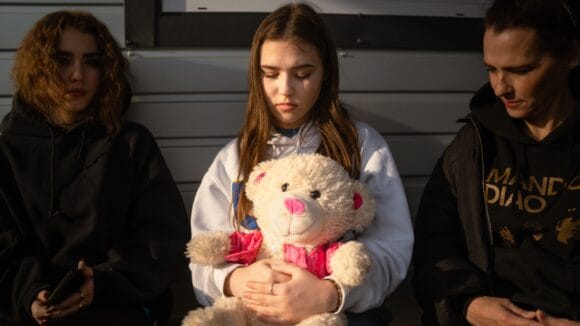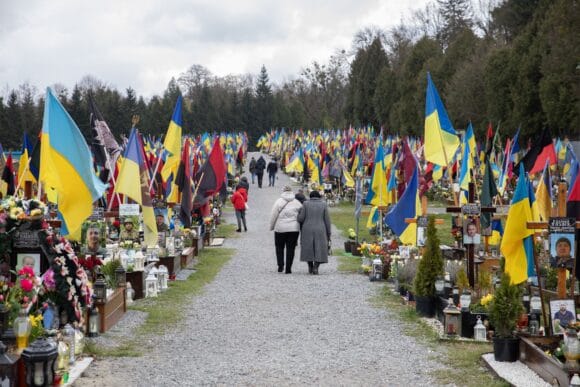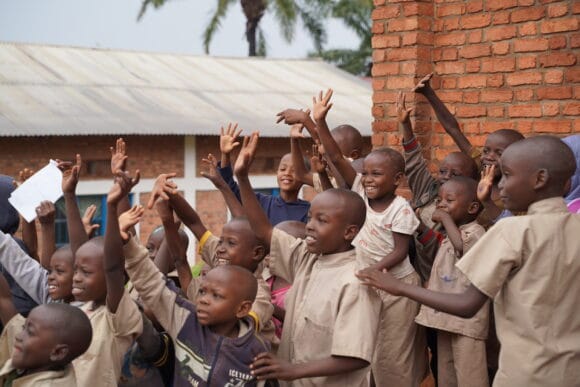Fida commissioned an external evaluation of development cooperation in Kenya. It found that the work over the last five years has been highly effective and has contributed to both Kenya’s and Finland’s development goals.
In Kenya, Fida works in partnership with the Full Gospel Church of Kenya (FGCK). The aim is to promote the rights of children and young people to education and a safe life. The work focuses on vulnerable children and young people, including orphans, children living on the streets, children with disabilities, teenage mothers and marginalised young people. The work is carried out in five regions in Kenya: Kakamega, Loita, Marsabit, Pwani and Nairobi.
The purpose of the evaluation was to assess the coherence, effectiveness, efficiency, relevance, effectiveness and sustainability of the Country Programme according to criteria defined by the OECD Development Cooperation Committee.[1] Similar evaluations are carried out regularly in the development cooperation context.
According to Elisha Gura, Fida’s Country Programme Coordinator for Kenya, evaluation is an important part of the work because it shows whether the work is progressing in line with the objectives.
– The evaluation gives a picture of whether we have done things right, says Gura.
Shorter journeys to school, improved learning
According to the evaluation, Fida’s work in Kenya has been guided both by Kenya’s development objectives and Finland’s development policy priorities. The work has contributed to the UN Sustainable Development Goals, in particular the eradication of poverty and hunger, and the improvement of health, education and gender equality.
The new desks helped disabled children, as they no longer had to sit on stones or logs.
Fida’s development cooperation was also found to be effective. The programme far exceeded the number of children reached: instead of the target of 15,000 children, more than 57,000 children benefited from the programme, of whom almost 34,000 were girls.
Of these, more than 1,100 were children with disabilities. For example, the construction of new schools shortened the school journeys and improved the quality of learning. In addition, new, appropriate desks especially helped children with disabilities, as they no longer had to sit on stones or logs in school.
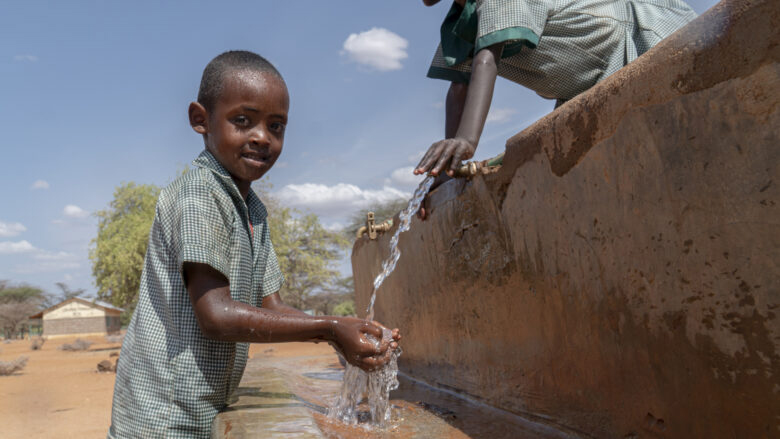

The pandemic and prolonged drought made work difficult
The past two years have brought exceptional challenges for the work in Kenya. The COVID-19 pandemic made work significantly more difficult in 2020 and 2021. For example, lockdowns and periodic travel restrictions, prevented Fida and partner staff from carrying out some planned activities.
– Many Kenyans lost their livelihoods because of the pandemic. This in turn increased family conflict and violence, which for the project meant that the focus had to be redirected to new challenges, says Elisha Gura, Country Programme Coordinator.
During the assessment period, Kenya also experienced the ongoing impacts of climate change. One of the flagships of the country programme has been to improve people’s food security and livelihoods through training in sustainable agricultural skills. Unfortunately, the prolonged drought reduced opportunities for farming and brought severe food shortages to the areas where the Country Programme is operating.
Resources were targeted to real needs and helped the most vulnerable people.
– In order to respond to hunger, we had to further increase education on the impacts of climate change. We introduced more drought-resistant crops to combat the situation, but contrary to what was planned, we also had to encourage people to find other sources of livelihoods instead of farming, says Gura.
The evaluation found that, despite the challenges, the Country Programme managed to use the resources it received effectively from 2018-2021. Fida and FGCK were successful in translating the resources allocated to the Kenya Programme into good results. This is demonstrated, for example, by the number of beneficiaries being well above the target.
The report concludes that Fida and FGCK were successful in terms of work efficiency, in particular, because resources were targeted at real needs and helped the most vulnerable people.
It is important to ensure the continuity of work
According to the evaluation, Fida’s Kenya Country Programme promotes justice, dignity and peace in Kenya. According to the evaluator, it is important for the sustainability of the results achieved that the Kenyan Country Programme continues to take into account the needs of communities in the future. During the 2018-2021 programming period, FGCK’s executive capacity was strengthened by developing its own personnel policy and policies related to children’s rights and good governance. The evaluation report recommends that Fida continue to support FGCK in carrying out the work. This will further strengthen the sustainability and continuity of the work.
– The evaluation showed that we are a relevant actor, responding to people’s needs and using our resources efficiently. We do the right things and our actions make a difference. In other words, our work in Kenya is justified, concludes Elisha Gura.
In the main photo, a mother and daughter demonstrate the shade structure that protects their crops from heat and drought in the Marsabit region of Kenya.
[1] https://www.oecd.org/dac/evaluation/daccriteriaforevaluatingdevelopmentassistance.htm
Read more about Fida’s development work in Kenya: puhdas vesi muuttaa yhteisöjen elämää Keniassa. (Only in Finnish.)
